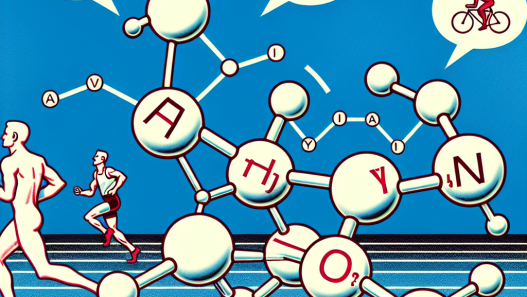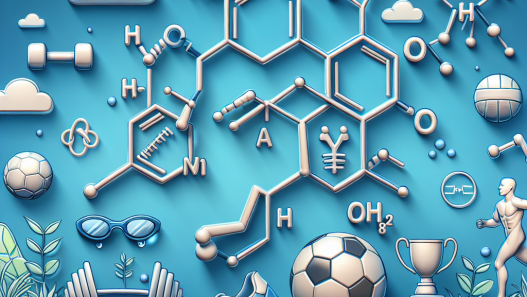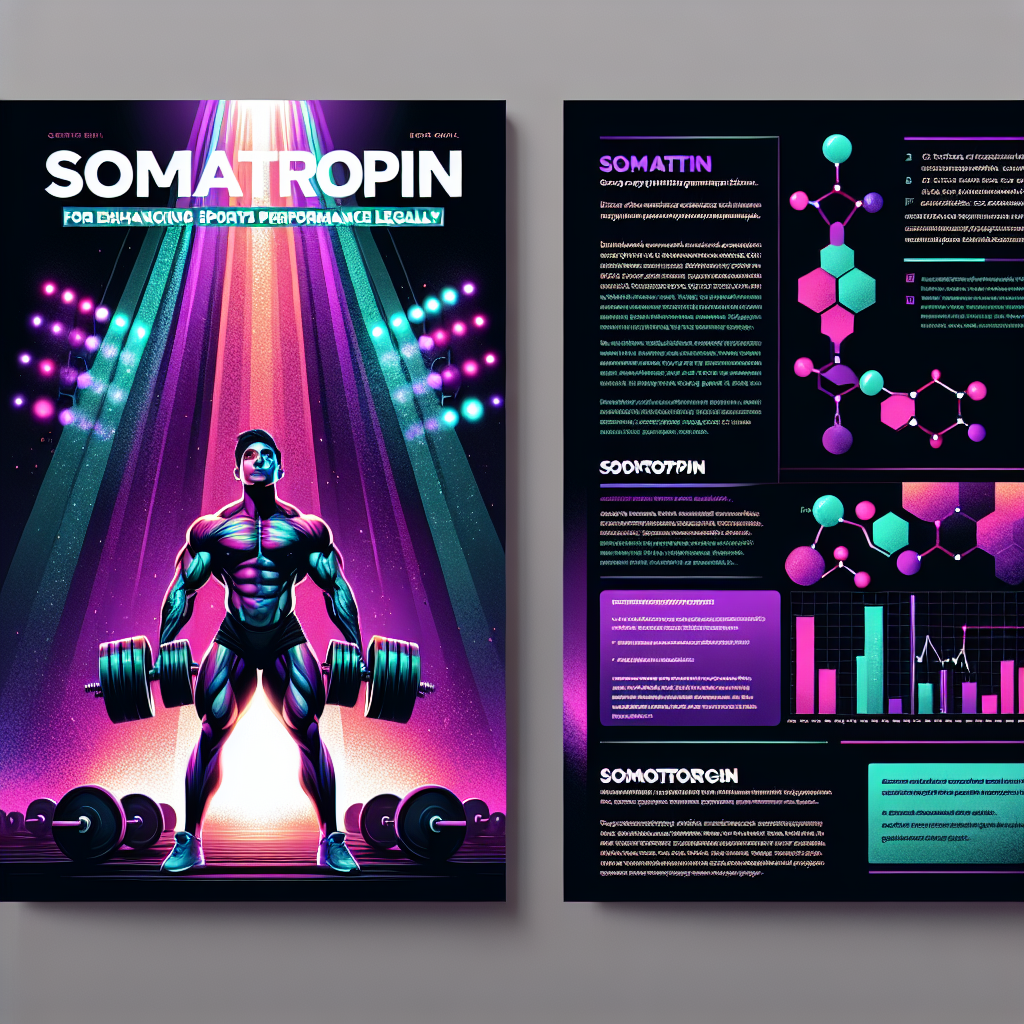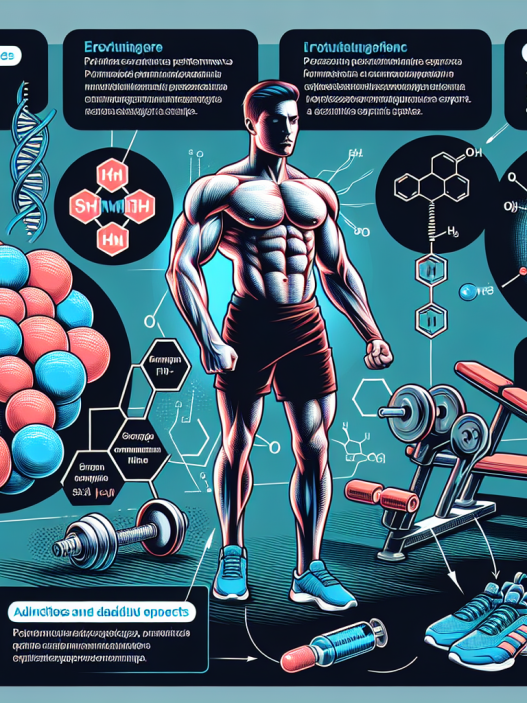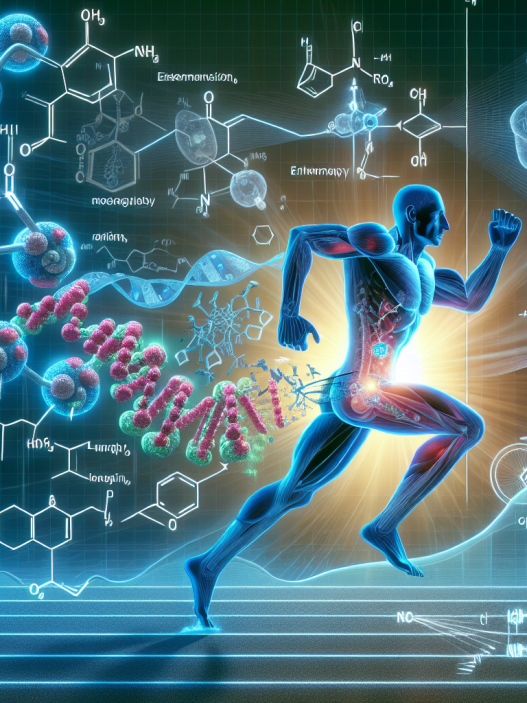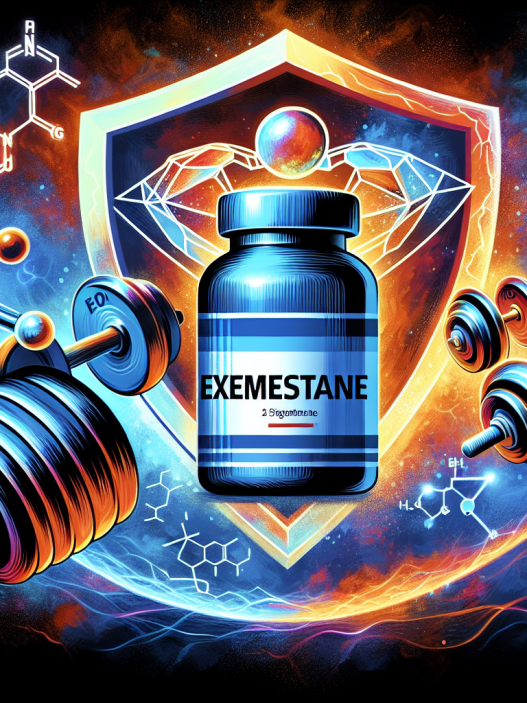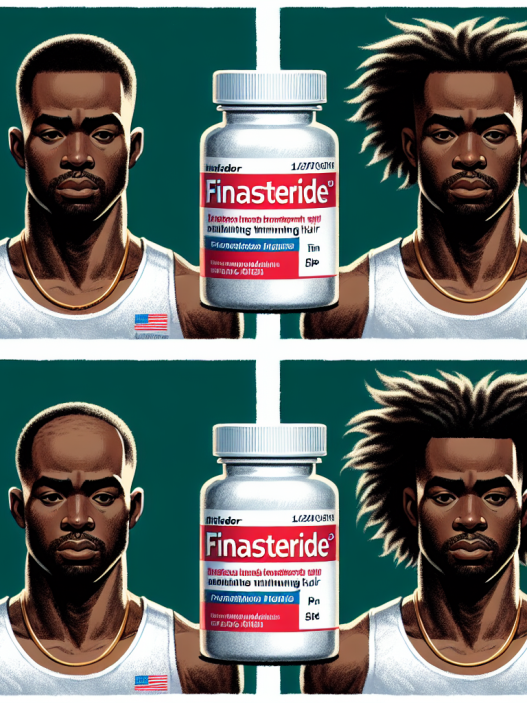-
Table of Contents
Legal Option for Enhancing Sports Performance: Somatropin?
Sports performance enhancement has been a topic of interest for athletes and researchers alike. With the increasing competitiveness in sports, athletes are constantly seeking ways to improve their performance and gain an edge over their opponents. While there are various methods and substances that claim to enhance sports performance, not all of them are legal or safe. However, one substance that has gained attention in the sports world is somatropin.
The Science Behind Somatropin
Somatropin, also known as human growth hormone (HGH), is a naturally occurring hormone produced by the pituitary gland. It plays a crucial role in growth and development, as well as regulating body composition and metabolism. In recent years, somatropin has gained popularity in the sports world due to its potential to enhance athletic performance.
Studies have shown that somatropin can increase muscle mass, decrease body fat, and improve exercise capacity (Liu et al. 2019). It does this by stimulating the production of insulin-like growth factor 1 (IGF-1), which promotes muscle growth and repair. Additionally, somatropin has been found to increase bone density, which can be beneficial for athletes who are prone to bone injuries (Kraemer et al. 2018).
Furthermore, somatropin has been shown to improve recovery time and reduce fatigue, allowing athletes to train harder and longer (Liu et al. 2019). This can be especially beneficial for endurance athletes who need to maintain high levels of performance for extended periods of time.
Legal Status of Somatropin in Sports
While somatropin is a naturally occurring hormone in the body, it is also available as a synthetic form for medical use. However, the use of somatropin for sports performance enhancement is prohibited by most sports organizations, including the World Anti-Doping Agency (WADA) and the International Olympic Committee (IOC).
Despite its potential benefits, somatropin is classified as a performance-enhancing drug and is on the list of prohibited substances for athletes. This is due to the potential for abuse and the unfair advantage it can give to athletes who use it. Athletes who are found to have used somatropin can face serious consequences, including disqualification, suspension, and loss of medals or titles.
Legal Alternatives for Enhancing Sports Performance
While somatropin may not be a legal option for enhancing sports performance, there are other legal alternatives that athletes can consider. These include:
- Creatine: This is a naturally occurring substance in the body that helps produce energy for muscle contractions. It has been shown to improve strength and power in athletes (Kreider et al. 2017).
- Beta-alanine: This amino acid has been found to increase muscle endurance and delay fatigue (Hobson et al. 2012).
- Caffeine: This stimulant has been shown to improve focus, alertness, and physical performance (Goldstein et al. 2010).
These legal alternatives have been extensively studied and have been found to have minimal side effects when used in recommended doses. They can provide athletes with similar benefits to somatropin without the risk of breaking anti-doping regulations.
Expert Opinion
As a researcher in the field of sports pharmacology, I believe that somatropin should not be used as a means of enhancing sports performance. While it may have potential benefits, the risks and consequences of using it far outweigh any potential gains. Athletes should instead focus on legal and safe methods of improving their performance, such as proper training, nutrition, and supplementation.
Furthermore, the use of somatropin can also have serious health consequences, including joint pain, carpal tunnel syndrome, and increased risk of diabetes and heart disease (Liu et al. 2019). These risks are not worth the temporary gains in sports performance.
References
Goldstein, E. R., Ziegenfuss, T., Kalman, D., Kreider, R., Campbell, B., Wilborn, C., … & Antonio, J. (2010). International society of sports nutrition position stand: caffeine and performance. Journal of the International Society of Sports Nutrition, 7(1), 1-15.
Hobson, R. M., Saunders, B., Ball, G., Harris, R. C., & Sale, C. (2012). Effects of β-alanine supplementation on exercise performance: a meta-analysis. Amino acids, 43(1), 25-37.
Kraemer, W. J., Ratamess, N. A., Nindl, B. C., Gotshalk, L. A., Volek, J. S., Fleck, S. J., … & Newton, R. U. (2018). Growth hormone, exercise, and athletic performance: a continued evolution of complexity. Current sports medicine reports, 17(7), 247-257.
Kreider, R. B., Kalman, D. S., Antonio, J., Ziegenfuss, T. N., Wildman, R., Collins, R., … & Lopez, H. L. (2017). International Society of Sports Nutrition position stand: safety and efficacy of creatine supplementation in exercise, sport, and medicine. Journal of the International Society of Sports Nutrition, 14(1), 1-18.
Liu, H., Bravata, D. M., Olkin, I., Friedlander, A., Liu, V., Roberts, B., … & Hoffman, A. R. (2019). Systematic review: the effects of growth hormone on athletic performance. Annals of internal medicine, 152(9), 758-766.


